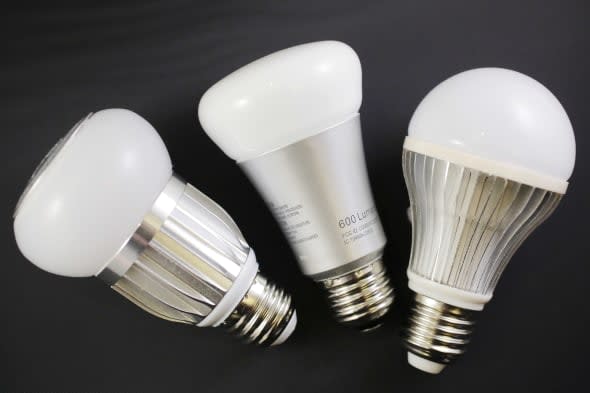Halogen bulbs could be banned this year

The European Commission is soon to vote on whether to ban halogen light bulbs next year, or wait until 2018.
The ban was originally due to come into force in 2016 as part of an effort to improve energy efficiency. But the Commission itself is concerned that things are moving too quickly, with a lack of low-cost, high-quality alternatives.
The EU has already banned traditional incandescent bulbs, which are disappearing in phased stages. And the latest change - requiring all bulbs to be energy-efficiency class B - means that halogen bulbs will disappear too. Householders will be expected to start switching to standard energy-saving bulbs, known as CFLs, and LEDs.
Unsurprisingly, Steven Ellwood, managing director of lighting supplier BLT Direct is all in favour of an early ban.
"There really are no downsides to switching to energy-saving light bulbs. With a longer lifespan and lower energy consumption, consumers are much better-off financially," he says.
"The standard of light output remains incredibly high, so those installing the bulbs can enjoy the same warm illumination they've grown accustomed to."
While halogen bulbs do use around 10% less energy than standard incandescent bulbs, CFLs use around 70% less and LEDs up to 90% - meaning lower electricity bills.
According to Which?, though, around half of people still have halogen bulbs in their home. And with some reason: while they have higher running costs than LEDs or CFL bulbs, they are far cheaper to buy, do generally give a better colour and quality of light, and and don't take as long to come on.
"LED and CFL bulb technology still has some way to go to fully fill the gap that would be left by a halogen bulbs ban. In particular, LED light bulb prices are still a little higher than is acceptable for some," says Which?.
"Delaying the implementation of stage six to 2018 would allow more time for some of the compatibility and user issues to be resolved and allow a smoother transition to super-efficient domestic lighting across Europe."
Industry organisation Lighting Europe agrees.
"To put it simply: a phase-out starting before 2020 is going to be confusing, costly, and inconvenient to European Union consumers," says its secretary general Diederik de Stoppelaar.
"The industry strongly supports - and has for years - the changeover to more energy-efficient lighting solutions. However, a 2018 date does not allow for alternative developing technologies to be widely available - and it is the consumers who will lose out."
Read more on AOL Money:
Would you pay £60 for a light bulb?
Warning over LED light bulb rip-off
10 ways to save money and help the planet




